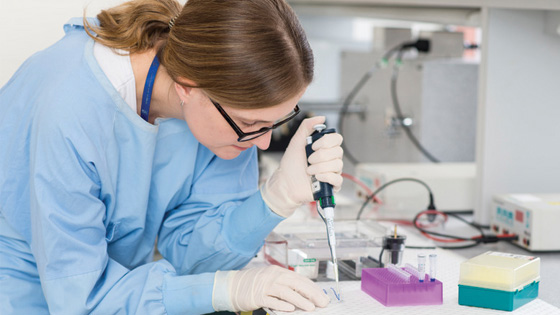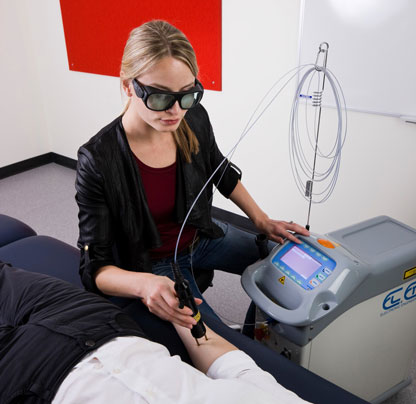
A group of researchers at the University of South Australia (UniSA) are working to improve the quality of life for children who have debilitating and often fatal Lysosomal Storage Disorders (LSDs), by making lung health a priority among patients.
LSDs are a group of around 50 rare genetic diseases resulting from an inactive or deficient protein that breaks down waste products within a cell. As a result, waste products accumulate, becoming toxic to the cell, leading to the onset of devastating disease.
Depending on the type of LSD, individuals can exhibit a range of pathologies including neurological dysfunction and skeletal abnormalities. It is estimated that as many as one in 5000 people are affected by LSDs in Australia. LSDs mainly affect children. Those with severe disease often die at birth or at only a few months of age, while a majority of those suffering die around the ages of 10-15 years.
Associate Professor Sandra Orgeig has teamed up with Dr Emma Parkinson-Lawrence to explore how LSDs affect lung health and function in collaboration with the Lysosomal Diseases Research Unit (SAHMRI).
Dr Parkinson-Lawrence focuses her work specifically on the pathogenesis of LSDs, while Assoc Prof Orgeig’s background surrounds an aspect of the lung called the pulmonary surfactant system. Together with research students, they have begun a project aiming to characterise how the lung is affected by a particular LSD, Mucopolysaccharidosis Type IIIA, to demonstrate that reduced lung health and function is a common problem among patients.
“A respiratory issue is a common feature of these diseases. Children who die from these diseases often die of a respiratory infection, but because there are more dominant issues, the lungs have not been a focus of investigation,” Assoc Prof Orgeig says.
Within our lungs is a very thin layer of fluid that creates the risk of delicate lung tissues sticking together, making it difficult to properly inflate and deflate the lung. It is similar to a glass slide being placed on top of a droplet of water on a table – the high surface tension of the water between the two layers makes it difficult to pick up the slide.
“The pulmonary surfactant system, a mixture of lipids and proteins, lowers the surface tension of the lungs, helping them inflate and function appropriately. We’re hypothesising that the increased waste storage in the children’s lung cells disrupts production of pulmonary surfactant. If left undetected, the defects would gradually accumulate and the patient may eventually succumb to respiratory dysfunction.”
Our lungs constantly breathe in particles and pathogens, and pulmonary surfactant also has an immune function to fight these invaders, acting as a first line of defence in the lung.
“Our hypothesis as to why these children are dying from respiratory infections is because they might not be producing this defence.”
Both Assoc Prof Orgeig and Dr Parkinson-Lawrence hope their research will one day extend into other types of genetic diseases, with the aim of developing treatments for these respiratory issues.
While both researchers are confident in their hypothesis, and are one of the only groups in the world exploring this issue, funding for lung diseases is hard to secure.
“However, we have been fortunate that Lung Foundation Australia has recognised the importance of our work with the award of the Ludwig-Engel Grant-in-Aid.
“If we can show that surfactant dysfunction is a common factor, we can try to find treatments. For example, we could give patients an artificial surfactant, such as that given to help premature babies to breathe when their surfactant system has yet to develop.
“This has the potential to give patients a better quality of life and may also extend life.”

100% of your gift will go directly to support health research at UniSA - there are no administration fees, no overheads and no hidden costs.
Support our researchers continue their work in preventing illness, improving health systems and services, creating more effective therapies, and advancing health equality.
